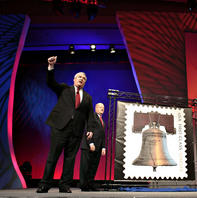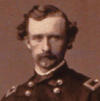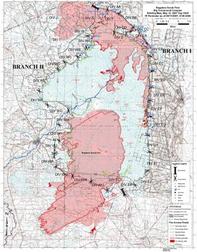 What’s the point of a free press if it can’t be delivered?
What’s the point of a free press if it can’t be delivered?
To the surprise of many independent publishers, in February the Postal Regulatory Commission (PRC), the body in charge of determining postal rates, rejected a rate-hike plan that was submitted by the U.S. Postal Service, the people in the business of delivering the mail for the past 215 years. This plan was widely understood to call for an approximate 12 percent increase that would have hit all publications more or less equally.Why Time Warner? Continue readingInstead the PRC adopted a revised version of an extremely complicated proposal submitted by media conglomerate Time Warner that included a number of possible discounts favoring the largest publishers.
— Postal Rates = Free Press, Rate hike pushed by media conglomerate Time Warner threaten small and medium-circulation publications, By Robert W. McChesney, In These Times May 17, 2007
 This make me wonder:
This make me wonder:







 Susan Crawford hits the broadband nail on the head:
Susan Crawford hits the broadband nail on the head:

